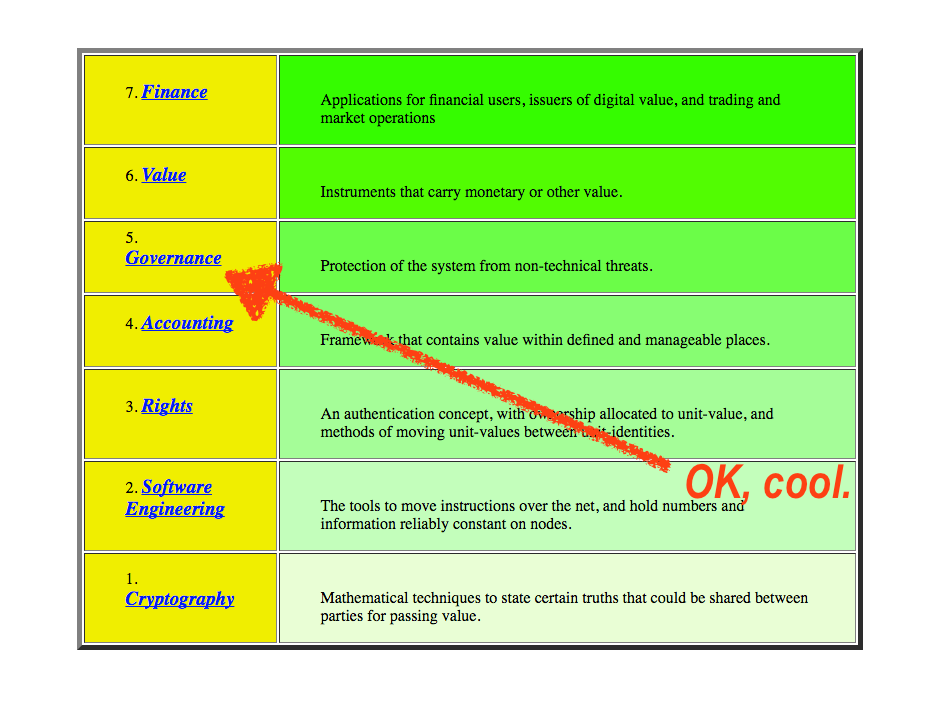One of the things that I learnt in the CAcert adventure was that governance was critical to the safe operation of large communities. How large is large ... is a question of much debate, but to put it bluntly, this is needed beyond say a 2 digit size, which I’ve always seen as around 30, but certainly well before Dunbar’s number of 150.
Now, the problem with governance is that once it’s in place, it becomes power. And power corrupts. So as technologists we like to try and invent things that take the power back out of the hands of the powerful, the corrupted, and place them into the technology. Tech can’t be corrupted, right? That’s a joke...
Some might call this decentralisation, but that places a technique to the fore, not the purpose. We don’t decentralise for the sake of it, we do that because we want its benefits, which work sometimes and sometimes not.
Principle - Automate what we can, govern the rest
A general principle in life is, what power struggles we can automate, we do, and what’s left over is the responsibility of the governance layer (which I called layer 5 in FC7). This is a long standing principle, going back to the invention of the chief, the secret ballot, the bribe, and although Bitcoin’s blockchain represents a stunning advance, it is probably only shifting the governance dial by 1% in the historical context.

By which I’m trying to say: Governance is a thing, and I for one believe that it is an unavoidable thing. Those that are claiming it’s not necessary for e.g., blockchain are IMHO wrong, and there’s stunningly clear evidence of that in the DAO adventure. But I recognise that if you’ve made up your mind on that, and Governance isn’t part of your religious beliefs, that’s fine. You can stop reading and save your time & energy.
If not, then read on for Requirement #1 of a Principled Blockchain Governance... or if you're done with that, catch up on @dantheman's "How to create a meaningful Blockchain Constitution" and earlier post "Why every Blockchain needs a Constitution"
